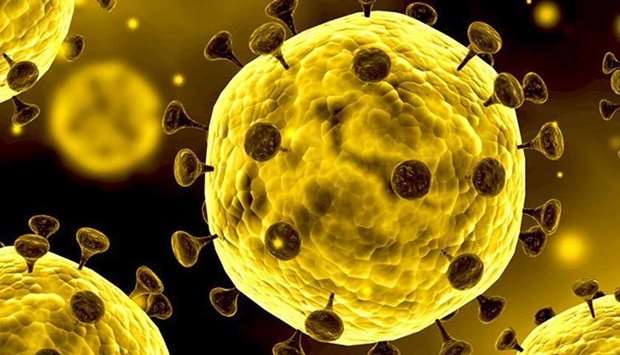• UK eases quarantine rules for vaccinated returning citizens
• Moscow mayor says Covid-19 situation stabilising
US coronavirus (Covid-19) cases are up around 11% over last week, almost entirely among people who have not been vaccinated, officials said yesterday, as the highly-infectious Delta variant becomes the dominant Covid-19 strain in the country.
Around 93% of Covid-19 cases have occurred in counties with vaccination rates of less than 40%, said US Centres for Disease Control and Prevention (CDC) director Rochelle Walensky.
Nearly all deaths and hospitalisations nationwide are among unvaccinated people, said Jeff Zients, who leads the White House’s Covid-19 response team.
“Simply put: in areas of low vaccination coverage, cases and hospitalisations are up,” Walensky said.
The CDC earlier this week said that the Delta variant of Covid-19 has already become the dominant strain in the United States.
The variant, which is highly contagious, has also become dominant in other countries around the world.
Cases of Covid-19 are surging in counties representing 9mn people, Walensky said.
The White House plans to concentrate federal assistance for vaccinating against and treating Covid-19 in states, including Arkansas, Missouri, Nevada and Illinois, Zients said.
The White House last week said it would send out special teams to hot spots around the United States to combat the Delta variant amid rising case counts in parts of the country.
The White House is also working to make Covid-19 vaccines available at doctors’ offices around the country, Zients added.
He said the spread of the Delta variant is particularly dangerous to young people.
Research suggests it may cause more severe disease among younger people than other variants of the coronavirus.
Walensky added that the United States is seeing outbreaks of Covid-19 at summer camps and other community events.
UK citizens returning to England from most European countries will soon no longer have to self-quarantine if they are fully vaccinated against Covid-19, the government announced yesterday.
The change will start from July 19, when the government hopes to remove virtually all coronavirus restrictions in England, but those plans face growing criticism due to a surge in infections of the Delta variant.
Under the existing rules, British-based travellers from amber-designated nations – the middle tier in the government’s Covid-19 traffic light risk ranking – must quarantine at home for 10 days on their return.
The “amber list” of countries currently comprises most of Europe, including tourist destinations such as France, Spain, and Italy.
“I can confirm today that from the 19th of July, UK residents who are fully vaccinated through the UK vaccine rollout will no longer have to self-isolate when they return to England,” Transport Secretary Grant Shapps told MPs.
Travellers will still be required to get tested 72 hours before departure and on the second day following their return.
Children, who are not currently being innoculated under Britain’s vaccination rollout, will also be exempt from quarantine.
British expatriates who have been fully vaccinated abroad and non-UK residents will still have to self-quarantine.
Moscow’s mayor meanwhile said that the Covid-19 situation was gradually stabilising after a surge in infections blamed on the Delta variant, but the new daily case tally remained high in Russia yesterday.
The coronavirus task force reported 24,818 new cases in the last 24 hours, including 6,040 in the capital.
Officials have been scrambling to encourage or compel Russians to get vaccinated since infections began rising steeply last month.
Demand for Covid-19 vaccine had been tepid, but authorities say it has now picked up significantly.
The mayor of Moscow, Russia’s worst-hit region throughout the pandemic, told residents that hospital admissions for Covid-19 patients were still very high, though down slightly from a peak last week.
Mayor Sergei Sobyanin said the city of more than 12.5mn was now vaccinating around 100,000 people every day, giving authorities room not to impose new restrictions.

Representative photo
